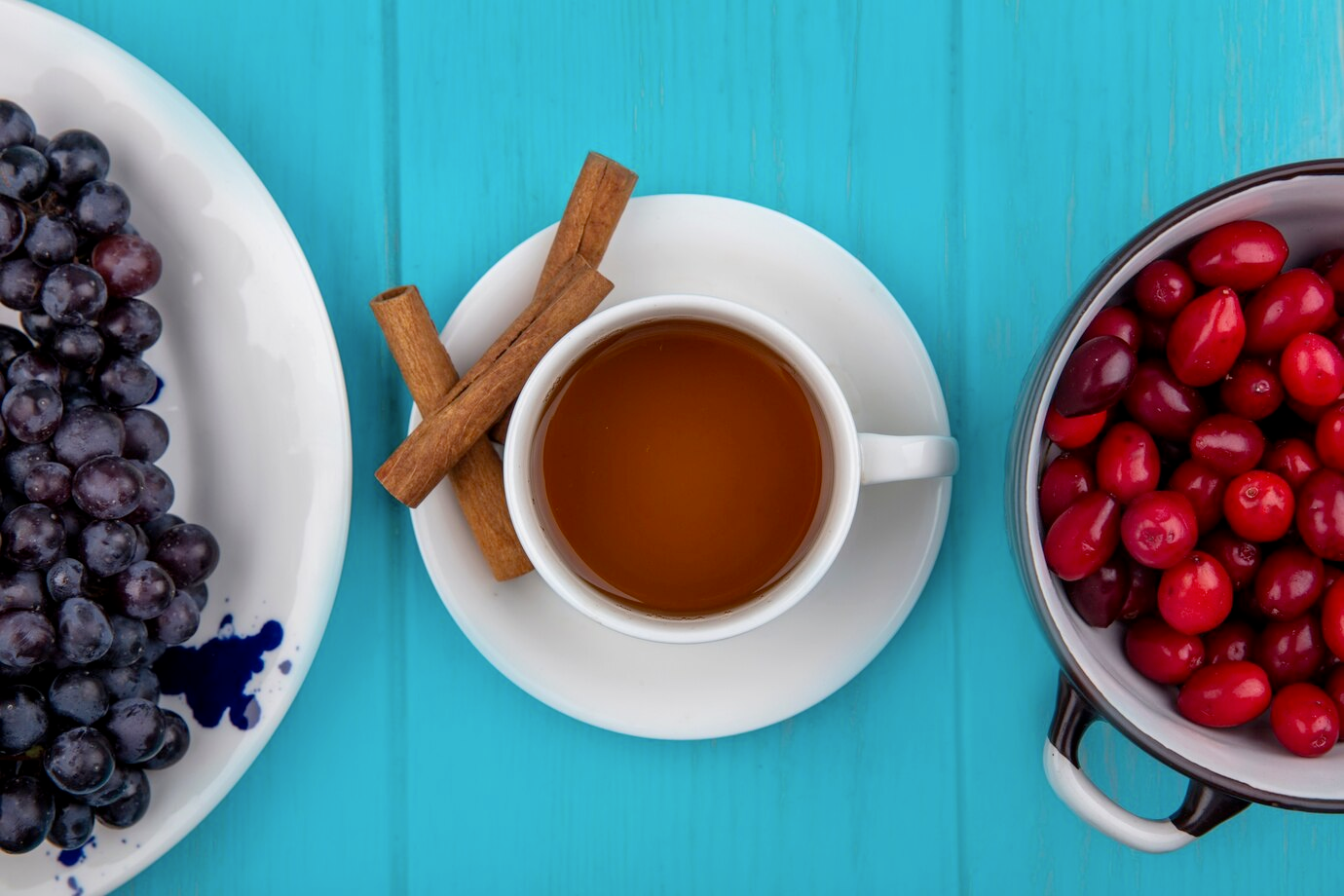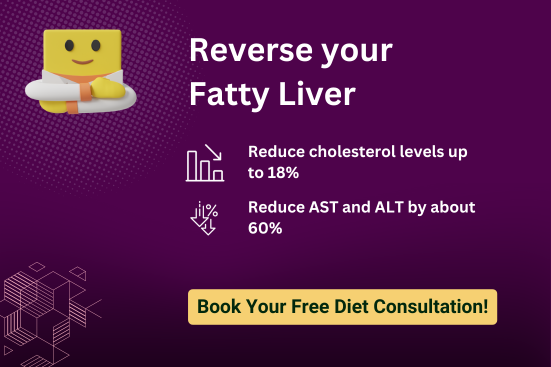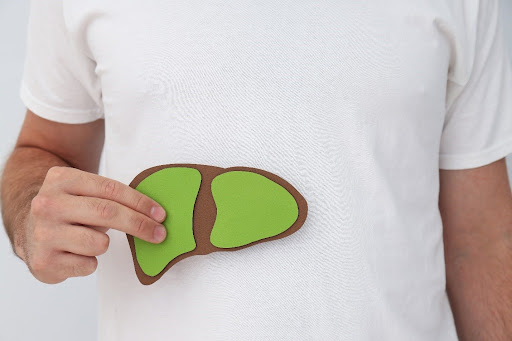A Dietary Guide to Gifting Your Fatty Liver a Long Life

Optimal Liver Health: Unlocking the Top 10 Nutrient-rich Foods to Reduce SGPT Levels Naturally
12 Apr 2024
Maintaining a healthy liver is a key component of overall well-being. Serum Glutamate Pyruvate Transaminase (SGPT) is an enzyme that indicates the health of our liver. Elevated levels of SGPT can signal potential harm or disorder in this vital organ. However, many of us may not realise that our day-to-day food habits and lifestyle choices significantly influence SGPT levels. A diet full of processed foods, sugars, and fats results in high SGPT levels, potentially leading to inflammation in the liver. In contrast, a balanced diet rich in antioxidants, vitamins, and good fats could lend a protective shield to the liver and reduce SGPT naturally.
In this blog post, we will get to grips with ten amazing foods to lower SGPT levels. We will delve into how these foods benefit the liver while also highlighting some lifestyle modifications for better liver health. Remember, caring for your liver is just as important as caring for any other part of your body, and it all starts with what you put on your plate!
Did you know?SGPT is alternately known as Alanine Transaminase, or ALT.
Top 10 Foods to Lower SGPT

Here is a list of the top 10 foods you can consider taking to reduce SGPT naturally:
- Oatmeal: Whole oats, or even steel-cut ones, are chock-full of wholesome nutrients that may aid your liver in its functioning. It’s advisable to steer clear of instant oatmeal, though, as it often includes unwanted fillers and sugars.
- Green Tea: Adding green tea to your tea time routine might be a healthy habit for your liver. Green tea is full of antioxidants, which may reduce SGPT naturally. Bear in mind, though, that moderation is key.
- Garlic: Garlic isn’t just for adding flavour to your dishes. This tiny bulb is packed with antioxidants that can aid in liver support.
- Berries: Berries are high in antioxidants such as polyphenols that can lower liver enzyme levels. So, next time you have a sweet craving, reach for a bowl of assorted berries instead of that chocolate bar.
- Grapes: Eating whole grapes can supply antioxidants for liver support due to a compound present in their skin.
- Grapefruit: Grapes aren’t merely tangy treats; they contain antioxidants like naringin and naringenin, which make them protective agents for your liver as they reduce SGPT naturally.
- Coffee: Studies have proven that long-term coffee drinkers are at an advantage as coffee has a positive effect when it comes to lowering liver enzyme levels. So get yourself a morning cup of coffee!
- Fatty Fish: Fatty fish come loaded with omega-3 fatty acids, which might help reduce liver inflammation by lowering liver enzyme levels.
- Nuts: Nuts can be great for your liver health as they contain unsaturated fatty acids, vitamin E, and antioxidants.
- Olive Oil: Olive oil is rich in unsaturated fatty acids, making it a good fat that may help reduce liver inflammation.
Fun Fact: The liver is the largest solid organ in the body. It weighs approximately 1.8 kg in men and 1.3 kg in women, making it about the size of a football.
Beyond the Plate: Lifestyle Changes for a Healthy Liver
A good diet plan is the primary weapon that can target and lower elevated levels of SGPT. However, this blog will remain incomplete without discussing desirable lifestyle changes that can further improve liver health. A conscious choice to limit consumption of sugar and processed foods, increase intake of fibre-rich foods, stay hydrated, and regularly exercise are all part of a holistic approach to liver health. Avoiding alcohol and quitting smoking are also crucial steps towards a healthier liver.
Key Takeaways
The quest for a healthy liver is easier than you may initially think. Making small, consistent alterations to your diet can significantly help lower liver enzyme levels and improve your liver’s health. Remember, foods rich in antioxidants, lean proteins, and healthy fats are your liver’s best friends. Include the top 10 foods we discussed, and you will be a step closer to nourishing your liver the right way.
We understand that each person’s nutritional needs and preferences are unique, which is why at tatvacare.in, we are committed to providing personalised advice matched to your specific health needs. We believe in the power of informed decisions when it comes to healthcare. So don’t hesitate to get in touch for a deeper understanding of how you can reduce SGPT naturally and take a positive step towards nurturing your liver today.

FAQs
Q. Can diet play a crucial role in lowering SGPT levels?
A: Yes, a balanced intake of essential nutrients, particularly from foods that promote liver health, can aid in reducing SGPT naturally, thereby enhancing liver function.
Q. How long does it take for dietary changes to affect SGPT levels?
A: The time it takes for dietary changes to lower liver enzyme levels can vary from person to person depending on overall health, the severity of liver damage, and adherence to dietary guidelines. However, some individuals may see improvements in SGPT levels within a few weeks to months of adopting a liver-friendly diet.
Q. Can supplements help lower SGPT levels as well?
A: While certain supplements may support liver health, it’s advisable to talk to a healthcare professional before adding them to your regimen, especially if you have liver issues.
Q. Is limiting alcohol consumption essential for lowering SGPT?
A: Absolutely! Excessive consumption of alcohol can cause significant damage to your liver and elevate your SGPT levels. It’s advisable to moderate alcohol intake or avoid it completely to maintain a healthy liver.
Q. Can regular exercise help maintain healthy SGPT levels?
A: Yes, along with a balanced diet, regular physical activity can help maintain an optimum weight and reduce fat accumulation in the liver, which consequently helps keep SGPT levels within the normal range.

Medically reviewed by
Dr. Krunal Chaudhari 
MBBS, MD
Recent Blog
- AI in Healthcare: Not a Threat, but a Smart Ally
- Your Clinic. Your Website. Your Brand.
- CDSS – Revolutionising Diagnosis with AI-Powered Clinical Decision Support System
- Handwritten to Digital in Seconds: SmartSync Converts Prescriptions Instantly
- Voice Rx by TatvaPractice: A Smarter Way to Digitise Prescriptions
Archives
Categories
- Asthma (20)
- Diabetes (15)
- Fatty Liver (20)
- High Blood Pressure (2)
- High cholesterol (2)
- Hypertension (2)
- Insulin Resistance (1)
- Obesity (8)
- PCOS (6)
- TatvaPractice (13)
Let’s Connect
Quick contact




